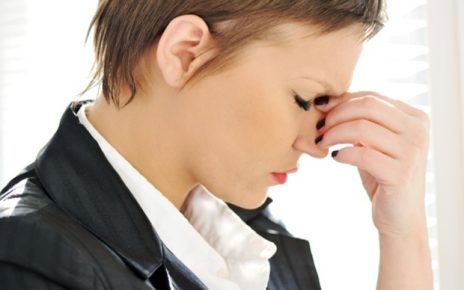Symptoms of debilitating bone disease osteoporosis explained
We use your sign-up to provide content in ways you’ve consented to and to improve our understanding of you. This may include adverts from us and 3rd parties based on our understanding. You can unsubscribe at any time. More info
Osteoporosis is when bones become weak and brittle, making them fragile and far more likely to break. As osteoporosis tends to develop slowly over several years it often isn’t detected until a fall or sudden impact causes a bone to break. Here are three early warning signs you shouldn’t ignore.
Osteoporosis affects more than three million people in the UK.
Osteoporosis happens when the formation of new bone fails to keep up with the loss of old bone, which leads to a loss of bone density.
The bones of those with the condition slowly become weaker over time which sharply increases the risk of fractures.
In the most serious cases, bones can become so brittle that even mild stresses, such as coughing or bending over, can cause painful fractures.


Osteoporosis is largely symptomless, however. Those with the condition often won’t experience any pain related to the disease until a bone is broken.
Although a fracture is often the first sign of osteoporosis, Age UK has outlined three key signs you should look out for as they could indicate your bones have weakened:
- Severe back pain
- Your spine has become curved
- You have lost height

Often Brits can spot their elderly relatives increasingly adopting a stooped-over posture – something which can often be attributed to osteoporosis.
This happens as the bones in the spine have broken or weakened, making it difficult to support the weight of the body, as a result, a bent forward posture may develop.
Similarly, a sense that someone has lost height can be attributed to this.
Who is most likely to develop osteoporosis?
Losing bone density is a normal part of the ageing process, but some lose bone far faster than others, which can lead to osteoporosis.

Overall older people are more likely to develop the condition, with women being at a higher risk than men as they can lose bone density rapidly within the first few years after menopause.
If a woman has been through menopause early or if they have had their ovaries removed, they are far more likely to develop the condition according to the NHS.
But other factors can affect your susceptibly to the disease such as:
- A family history of osteoporosis
- Taking high-doses of steroid tablets for over three months
- Having an eating disorder such as anorexia or bulimia
- Not exercising often
- Smoking and drinking heavily
- Having a low body mass index
How can you avoid osteoporosis?
Sadly for some, the condition will be unavoidable as they age, but there are some key steps you should take to help maintain healthy bones.
The NHS recommends Brits take regular exercise, eat healthily (including foods rich in calcium and vitamin d), give up smoking and excessive alcohol consumption in order to keep their bones as strong as possible.
Source: Read Full Article



